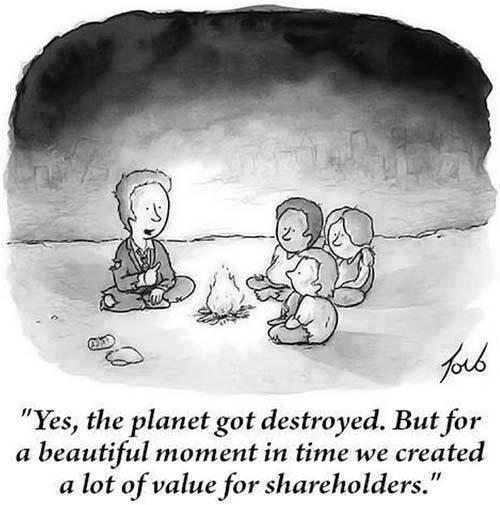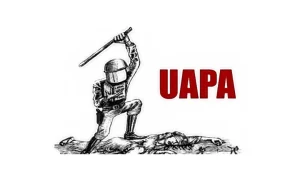The ever increasing pollution and exploitation of the environment that we have been witnessing in the era of imperialism is fast approaching a point where humans as a species may face extinction. While we see a lot of talk on climate change as nations and their responsibilities towards climate, we don’t see corporates being held responsible for the enormous pollution and exploitation they cause throughout their supply chains. Some features of monopoly capitalism are key to this ever growing pollution and exploitation. These features are so fundamental to imperialism that only a complete overhaul of this system and bringing socialism can address these. In this part, we discuss three such features.
Overproduction and manufacturing artificial demand: A fundamental characteristic of imperialism or monopoly capitalism is overproduction of commodities and of means of production. The ever increasing growth of surplus capital and overproduction of means of production necessitates worldwide production of commodities and creating a market for these in whatever ways possible. Consequently, a widespread culture of consumerism has been manufactured. The main content of this culture is to create an outlook in individuals that all their problems and conflicts can be solved by consumption of commodities or services. For example, buy clothing, ornaments, cars etc. to get sexual attention. While the unrealistic and nonsense stereotypes surrounding sexual attraction drive you mad, go to a spa or go shopping to feel good about yourself while your workplace, family, or friends treat you with no dignity and value. In these ways, we are being turned into addicts of consumption. We end up buying unnecessarily and excessively. Even going beyond our purchase powers, falling into debts and compromising on our essential needs. Instead of trying to solve the conflicts or struggling against the status quo collectively in any meaningful way, this individualised approach of seeking distraction from the reality by addiction to consumption is causing tremendous damage to our mental health driving us deep into loneliness and seclusion. On the other hand this is causing escalation of wastage. We and our environment are being subjected to such torment only for the sake of manufacturing market demand for overproduction. In socialist economy, there’s no question of overproduction. Except for some reserves in essential commodities, production is planned completely according to our necessity. So the volume of goods produced is limited to what is needed by society. To get rid of this rotten, toxic culture of consumerism and the crisis of overproduction, socialism is the only way.
Expanded reproduction and unbounded exploitation of natural resources: One of the fundamental features of capitalist production is expanded reproduction of commodities(Refer to chapters 23 and 24 of Capital, Volume 1 for more details). As a consequence of this, on one hand the production moves towards the crisis of overproduction and on the other hand we witness endless exploitation of natural resources. Capitalist production cannot survive without reinvestment of surplus and expanded reproduction. So the total volume of goods produced increases unboundedly causing unlimited exploitation of natural resources as raw materials for production. It is not only a wastage of resources, but also equally of labour. In a socialist economy where workers self-organise production, the increase in volume of production is only till the material necessities of workers are satisfied. The more the production progresses towards that satisfaction, the lesser the necessary labour hours per individual become. Decrease in product lifespan by design to recreate market causing massive wastage and pollution: It is a characteristic of monopoly capital to root out any competition in market by devastating them in price competition using all its might. However, when there’s only a handful of monopoly enterprises remaining in the market, there is no price competition between them. This is because in a price competition between two monopolies, even the winner would be significantly damaged. Hence, despite the contradictions between them being sharper than ever, those become largely extra-economic in nature. Capturing supply of raw materials, plundering cheap labour, capturing markets by military or political power, ownership of more advanced technology and implements of production, etc. So, as the price competition ends, we see that the enterprises intentionally reduce the lifespan of the products. The lesser the lifespan of products, the quicker its market demand is replenished. So we witness a widespread decrease in lifespan of all commodities from garments to mobile phones. The concept of brands advertising themselves as providers of long lasting products is fast becoming relics of the past. Nowadays, we see that even the products from top range brands don’t last too long. Consequently, not only in excessive production but also in waste management we witness massive damage to our environment. This is as much a wastage of labour as it is of natural resources. The planned economy in socialism where a dedicated planning commission designs the economy to highest utility of resources and labour can solve this. There is no necessity to recreate market demand as production is planned as per the needs of the society in socialist production.



